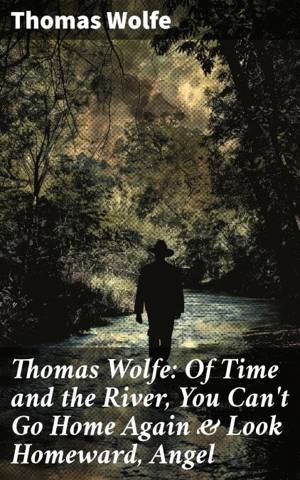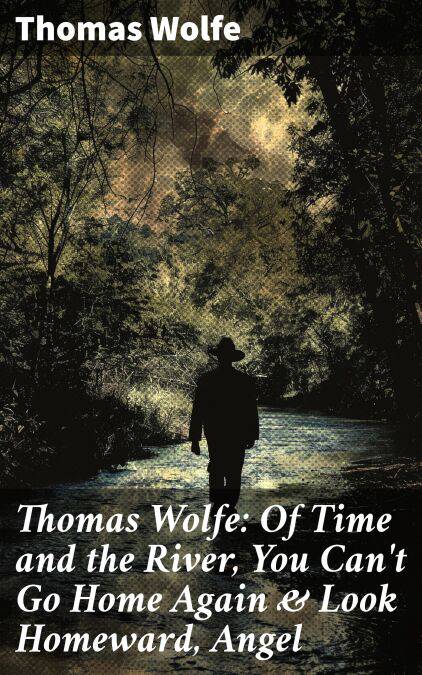
- Afhalen na 1 uur in een winkel met voorraad
- Gratis thuislevering in België vanaf € 30
- Ruim aanbod met 7 miljoen producten
- Afhalen na 1 uur in een winkel met voorraad
- Gratis thuislevering in België vanaf € 30
- Ruim aanbod met 7 miljoen producten
Zoeken
Thomas Wolfe: Of Time and the River, You Can't Go Home Again & Look Homeward, Angel E-BOOK
Capturing the essence of American life through lyrical prose and timeless themes
Thomas Wolfe
E-book | Engels
€ 1,99
+ 1 punten
Omschrijving
In "Thomas Wolfe: Of Time and the River, You Can't Go Home Again & Look Homeward, Angel," readers are immersed in Wolfe's rich tapestry of semi-autobiographical narratives that explore profound themes of nostalgia, identity, and the American experience. The literary style is characterized by its lyrical prose, vivid imagery, and introspective depth, drawing readers into the lives of his characters as they grapple with the passage of time and the relentless pull of their origins. Wolfe's work exemplifies the modernist movement, challenging conventional narrative structures while inviting readers to reflect on their own emotional landscapes. Thomas Wolfe, a Southern writer born in Asheville, North Carolina, draws heavily from his own tumultuous youth and the complexities of familial bonds, which profoundly influenced his narrative choices. His keen observations of the world around him, coupled with his desire to explore the human condition, laid the groundwork for the ambitious thematic aspirations seen in these novels. Wolfe's background and experiences infuse his writing with authenticity, allowing readers to connect deeply with the existential queries he poses. This collection is a compelling journey for readers who appreciate lyrical storytelling intertwined with philosophical musings. It is particularly recommended for those who seek to understand the transformative power of place and memory in shaping human experiences. Wolfe's masterful narratives resonate deeply, making this book an essential addition to the library of anyone interested in American literature.
Specificaties
Betrokkenen
- Auteur(s):
- Uitgeverij:
Inhoud
- Aantal bladzijden:
- 2196
- Taal:
- Engels
Eigenschappen
- Productcode (EAN):
- 8596547683148
- Verschijningsdatum:
- 29/11/2023
- Uitvoering:
- E-book
- Beveiligd met:
- Digital watermarking
- Formaat:
- ePub

Alleen bij Standaard Boekhandel
+ 1 punten op je klantenkaart van Standaard Boekhandel
Beoordelingen
We publiceren alleen reviews die voldoen aan de voorwaarden voor reviews. Bekijk onze voorwaarden voor reviews.











